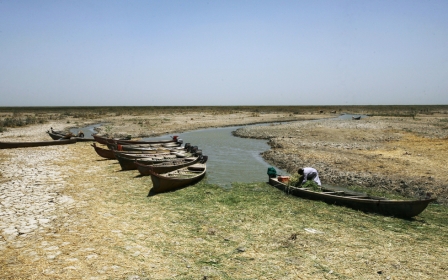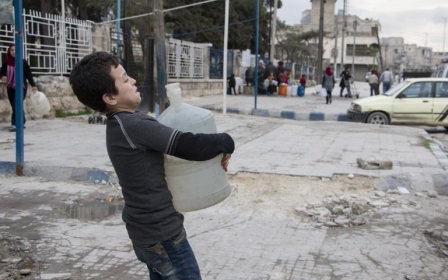Turkey slams 'inadequate' NASA over report on 'worst drought in 900 years'

Turkey has responded angrily to a NASA report that found that the region had recently experienced its worst drought in 900 years, calling the space agency's technology “inadequate”.
“Who does NASA think it is?” Forestry and Waterworks Minister Veysel Eroglu asked in Turkish parliament on Monday, responding to a reporter's question about the report.
A report released by the US government's space agency last month found that a drought affecting the eastern Mediterranean since 1998 is “likely the worst... of the past nine centuries”.
The report used tree-ring records to track the history of human-induced climate change, concluding that “the recent drought in the Levant region, from 1998 to 2012, stands out as about 50 percent drier than the driest period in the past 500 years”.
Eroglu rejected the findings, arguing that NASA's weather forecasts for the past year had been inaccurate.
NASA's report also found that the eastern Mediterranean region, which includes Turkey, is likely to be one of the worst affected by human-induced climate change in coming years.
Responding to Eroglu's comments on Monday, the agency tweeted a video of one of its astronauts in orbit at the International Space Station, singing part of David Bowie's 1969 hit Space Oddity.
Experts say that human-induced drought, and the mass displacement it causes, is a key contributing factor to conflict in the region, particularly in the case of Syria.
“Roughly from about 2007-2010, Syria experienced one of the worst droughts in the history of modern records,” Francesco Femia of the Centre for Climate and Security told MEE when the report was released.
“What happened is that drought coupled with natural resource mismanagement by the Assad regime...contributed to a very significant displacement of people before the revolution.
“These things all came together – climate change played a role as what security analysts call a threat multiplier.”
Middle East Eye propose une couverture et une analyse indépendantes et incomparables du Moyen-Orient, de l’Afrique du Nord et d’autres régions du monde. Pour en savoir plus sur la reprise de ce contenu et les frais qui s’appliquent, veuillez remplir ce formulaire [en anglais]. Pour en savoir plus sur MEE, cliquez ici [en anglais].




